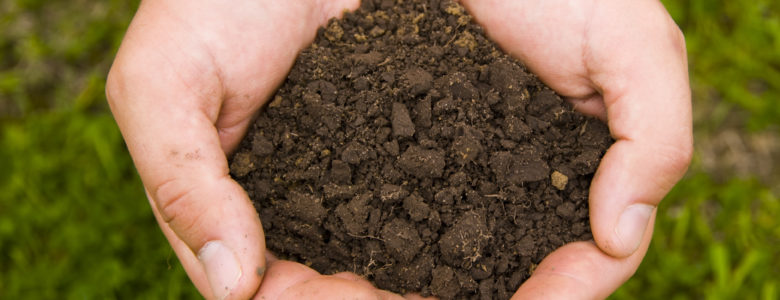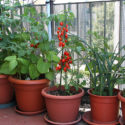When the soil in a flower bed is left to itself, it degrades and compacts, making the cultivation of ornamental plants more difficult. To counter this deterioration and to improve the quality of your soil, add compost each spring in your flowerbeds. In addition, most commercial composts, or the one you are making yourself, contain large amounts of nutrients essential for plant growth. In fact, the compost provides all the nitrogen and the phosphorus needed by the majority of ornamental plants. Compost gradually releases nutrients it contains, avoiding leaching and therefore pollution. A regular addition of compost can feed and maintain a healthy flora and fauna of the soil, which reduces the frequency and severity of attacks of pests and diseases. Most plants that grow in sunny flower beds, such as larkspur (Delphinium), peonies (Paeonia) and roses (Rosa), may receive each spring about 2.5 cm thick compost on a diameter equivalent to that of their crown of leaves. However, give much less to rockery plants, adapted to poor and sandy soils, such as lavender (Lavandula angustifolia) and scabious (Scabiosa).
Suggested Products
-
No suggested products found.



